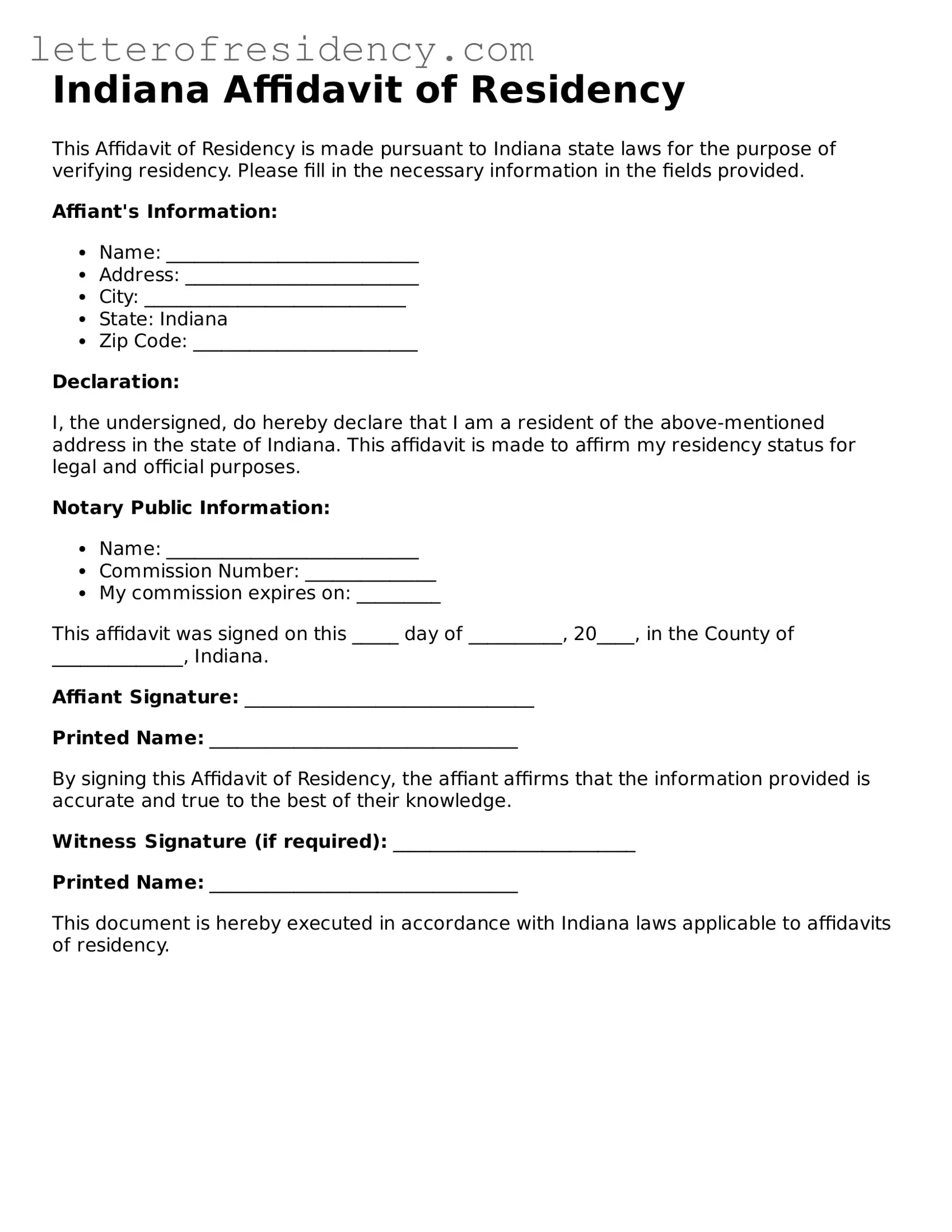What You Should Know About This Form
-
What is the Indiana Affidavit of Residency form?
The Indiana Affidavit of Residency form is a legal document used to confirm a person's residence in Indiana. This form is often required for various purposes, such as enrolling children in school, obtaining certain benefits, or proving residency for legal proceedings. It serves as a sworn statement that provides details about where an individual lives and can be used in various official capacities.
-
Who needs to complete the Affidavit of Residency?
Anyone who needs to verify their residency in Indiana may need to complete this form. This includes parents enrolling their children in school, individuals applying for state benefits, or those involved in legal matters that require proof of residence. If you are unsure whether you need this form, it’s best to check with the relevant agency or institution requesting the proof of residency.
-
How do I fill out the Affidavit of Residency form?
To fill out the Affidavit of Residency form, you will typically need to provide your name, current address, and any other required personal information. The form may also ask for details about how long you have lived at that address. Make sure to read the instructions carefully, as accuracy is crucial. After completing the form, you will need to sign it in front of a notary public to make it legally binding.
-
Where can I obtain the Affidavit of Residency form?
You can usually find the Indiana Affidavit of Residency form on the official website of the Indiana state government or the specific agency requiring it. Local schools, courts, and social services offices may also provide copies. If you’re having trouble locating the form online, consider reaching out to the appropriate agency for assistance.
-
What should I do after completing the form?
Once you have filled out the Affidavit of Residency form, the next step is to have it notarized. This means you will need to sign the document in the presence of a notary public, who will then stamp and sign the form to verify its authenticity. After notarization, keep a copy for your records and submit the original to the agency or institution that requested it.
